Breakaway Femmes Documentary
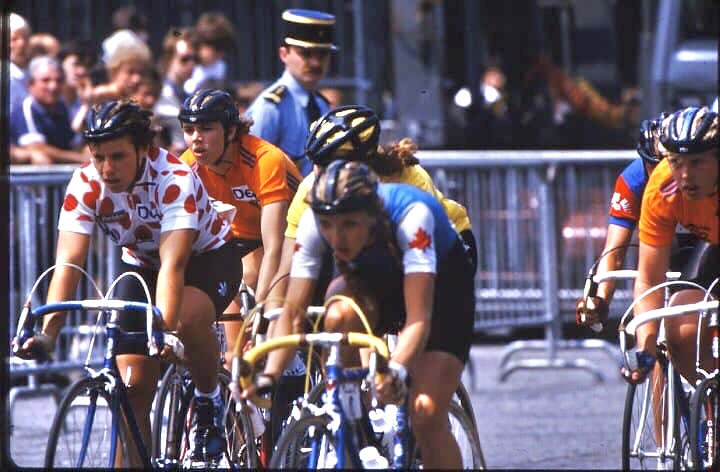
2025 is a year that spotlights the courageous women of the ’80s with the production of Breakaway Femmes, a film featuring unseen Tour de France footage. This film was shown across Canada and included Niagara’s very own Marilyn Friesen.
This cycling documentary takes you on a remarkable journey through the lives of women who shattered barriers and made history by competing in the legendary Tour de France.
Breakaway Femmes pays tribute to the trailblazers of the inaugural 1984 Tour de France—fearless women on a mission to showcase their dedication and determination. Directed by Eleanor Sharpe, the film features rare race footage alongside powerful interviews from past athletes about how it has affected their lives. I had the privilege of hosting this film event in collaboration with Film Canada at the Cineplex Odeon in Niagara Falls.
Leading up to the event, I reached out to cycling clubs throughout Niagara to spread the word, and excitement was palpable! The guest list blossomed, and we reserved enough tickets to secure the venue. Niagara has a rich cycling heritage, and I jumped at the opportunity to highlight local racing legends such as Marilyn Friesen, Karen Strong, Steve Bauer, and Gord Singleton.
The Niagara Falls film debut had cycling legend Steve Bauer in attendance! Steve won Canada’s first Olympic medal in road racing at the 1984 Olympics. While the Tour was historic for women’s cycling, Bauer finished 4th overall in 1988, wearing the yellow jersey for 4 days.
This film profiles the 1984-1989 Tour de France Féminin. In the world of road bike racing, the Tour de France is the most prestigious because it is 21 days long. The Tour is one of the three grand tours. The first Tour de France was in 1903.
Little did we know that in 1955, there was a women’s one-off version, 5 days long, without media. Sadly, it did not continue even though it disproved the collected attitudes that women couldn’t endure the Tour.
The Niagara back story:
In 1984, Niagara hosted the Olympic trials, which included climbing the Niagara Escarpment on the iconic Effingham Hill. The climb was steep, with a 15% gradient, making it a fierce battleground.
Our athletes from Niagara, Karen Strong and Marilyn Friesen, entered the Olympic trials. Niagara showcased with Karen selected for the Olympics, and Marilyn selected for the Tour de France. For the first time in the Olympics in Los Angeles, Women’s Road racing was included.
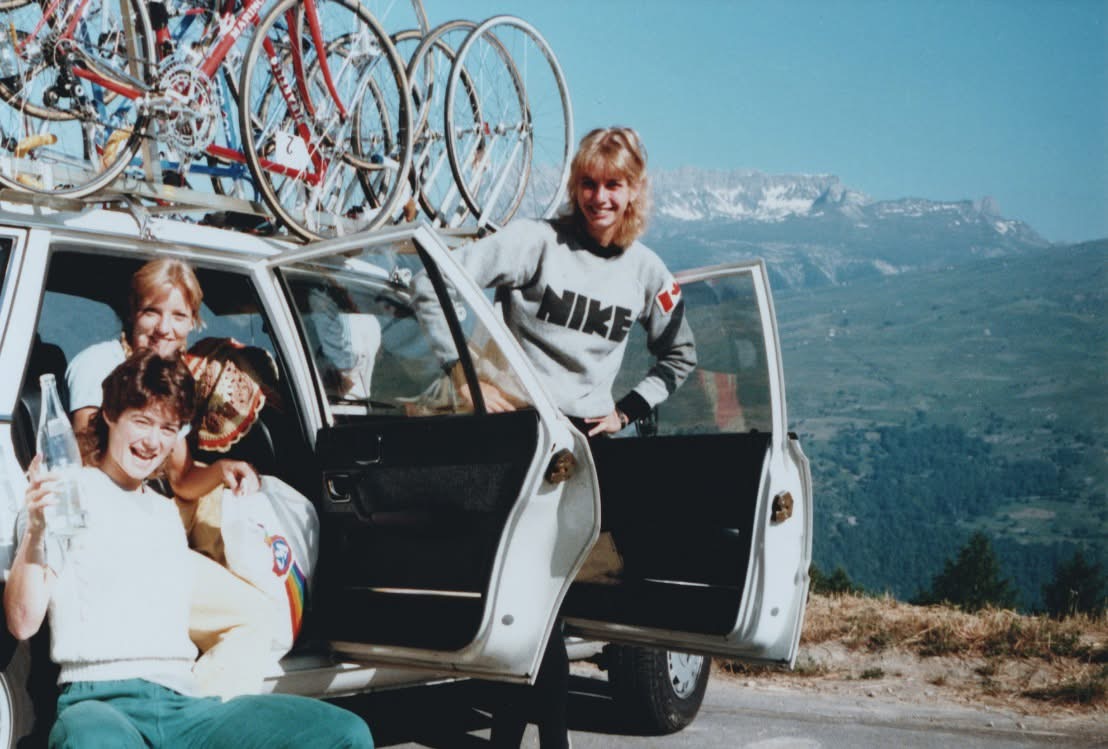
It is important to note that the Canadians entered the Tour as a national team. Self-funded, one loaned national team jersey, their own personal bike, no salaries, no spare bikes or luxury travel to do 18 stages and 1067 km. Watching the bare-bones support was impactful. The racers tolerated poor conditions and disrespect to prove themselves. For them, the bottom line was to complete this race.
Marilyn was not only interviewed for Breakaway Femmes but also played a pivotal role in promoting and connecting this powerful history.

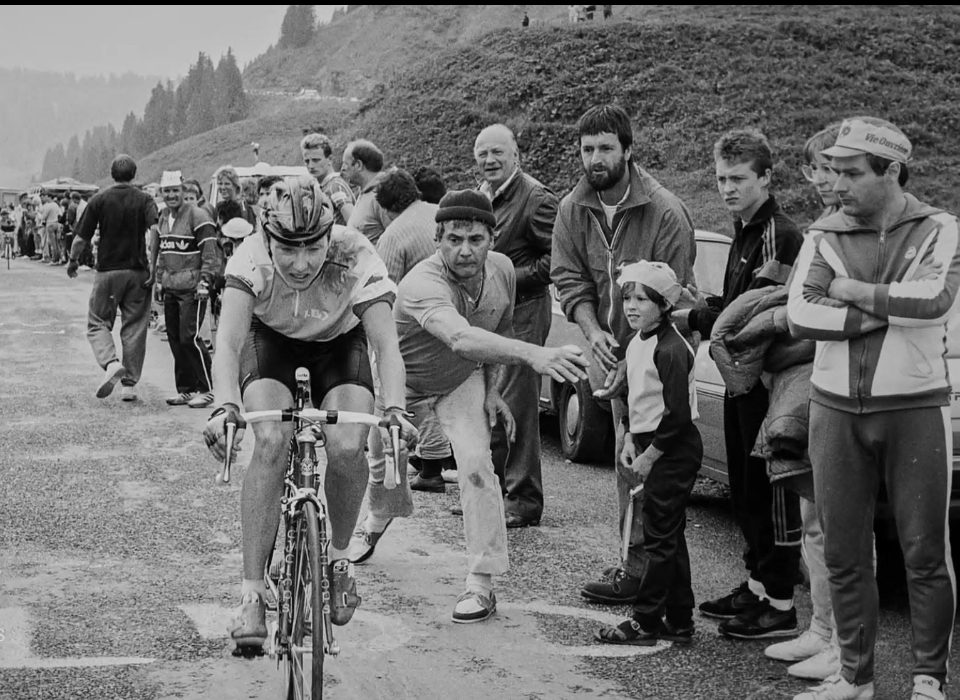
Marilyn lived in St Catharines, rode with the St Catharines Cycling Club, and trained with the late 1982 world Champion, Gord Singleton. Although Marilyn was selected to the National “B team” and faced the powerfully organized Dutch team, she placed 3rd on a stage and 8th overall! Team Canada organized to position Kelly Ann Way from Windsor to win stage 12 in the Women’s Tour De France in 1984!
As Grace Brown Olympic Gold medallist and world champion, commented after seeing Breakaway Femmes,
“I feel sorry for the women that raced back then because they were such strong, tough women that defied the odds, but didn’t really get recognized for what they did”
SBS SPORT
I personally found the film shocking, as a former road racer and now cycling coach. If only I were aware of the struggles and achievements of the women who came before me in cycling. I would have felt more confident in racing and advocating for women’s racing, especially after experiencing disheartening treatment in cycling. I can remember becoming speechless when a young athlete asked me 15 years ago, “Why isn’t there a Tour de France for women? ” It felt depressing to share any of the huge barriers and attitudes towards women’s racing.
While I pursued racing, media coverage of women’s racing consisted of only a small square of racing results in cycling magazines. Thirty years later, I finally got to put a face to and hear the racing stories behind the legendary names: Jeannie Longo from France, the Dutch Heleen Hage and Mieke Havik, and the Italian known as “the flying mother”, Maria Canins.
Professional cyclist 34 year old Brodie Chapman, who is a world TTT champion, stated at this year’s Le Tour de Femmes (avec Zwift):
“I can remember looking for pictures of female cyclists anywhere just to be inspired and it was really hard to find. Now I hope that everyone can watch us and feel inspired”
SBS SPORT
Integral to my development was the role of my first coach in bike racing, Karen Strong, the women’s national cycling team coach. Karen lived in the present and prioritized supporting the team, so her cycling accomplishments were not discussed. I was inspired by how Karen ran the team, managed a challenging system as a female coach, while coaching me for development.
This film will catalyze building on this critical documented history to inspire more change. Canada now has a first-time ever road world champion, Magdeleine Vallieres Mill. How exciting for Canada and Magdeleine that Montreal will host the world championships next year! Here, in Ontario, there has been interest in screening the film at training camps for upcoming racers to appreciate the cycling history.
I applaud the filmmaker for giving voice to the racers from 30 years ago, bringing their stories hidden in history to the forefront. I am grateful to Film Canada for being the first in North America to showcase the film. I truly loved hosting this film in Niagara Falls and am proud to have rallied for two other showings in St. Catharines at the Performing Arts Centre- The Film House.
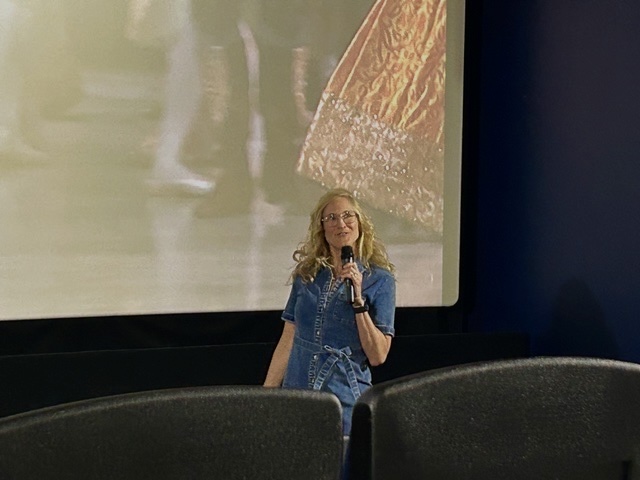
Hosting BREAKAWAY FEMMES Photo by Joel Smith
Where is the Tour de France Femmes at today?
After much rallying from professional cyclists, Le Tour de France Femmes avec Zwift arrived in 2022, spanning 9 stages at the end of July. Indeed, the goal is to have 3 weeks of racing once again. Current professionals will be further inspired (by this film) to reach new heights, including racing up the prestigious and historic Mont Ventoux in 2026 — the first time in the Tour de France Femmes avec Zwift. This year’s Tour winner, Pauline Ferrand-Prévot, is excited about this new opportunity and the added route.
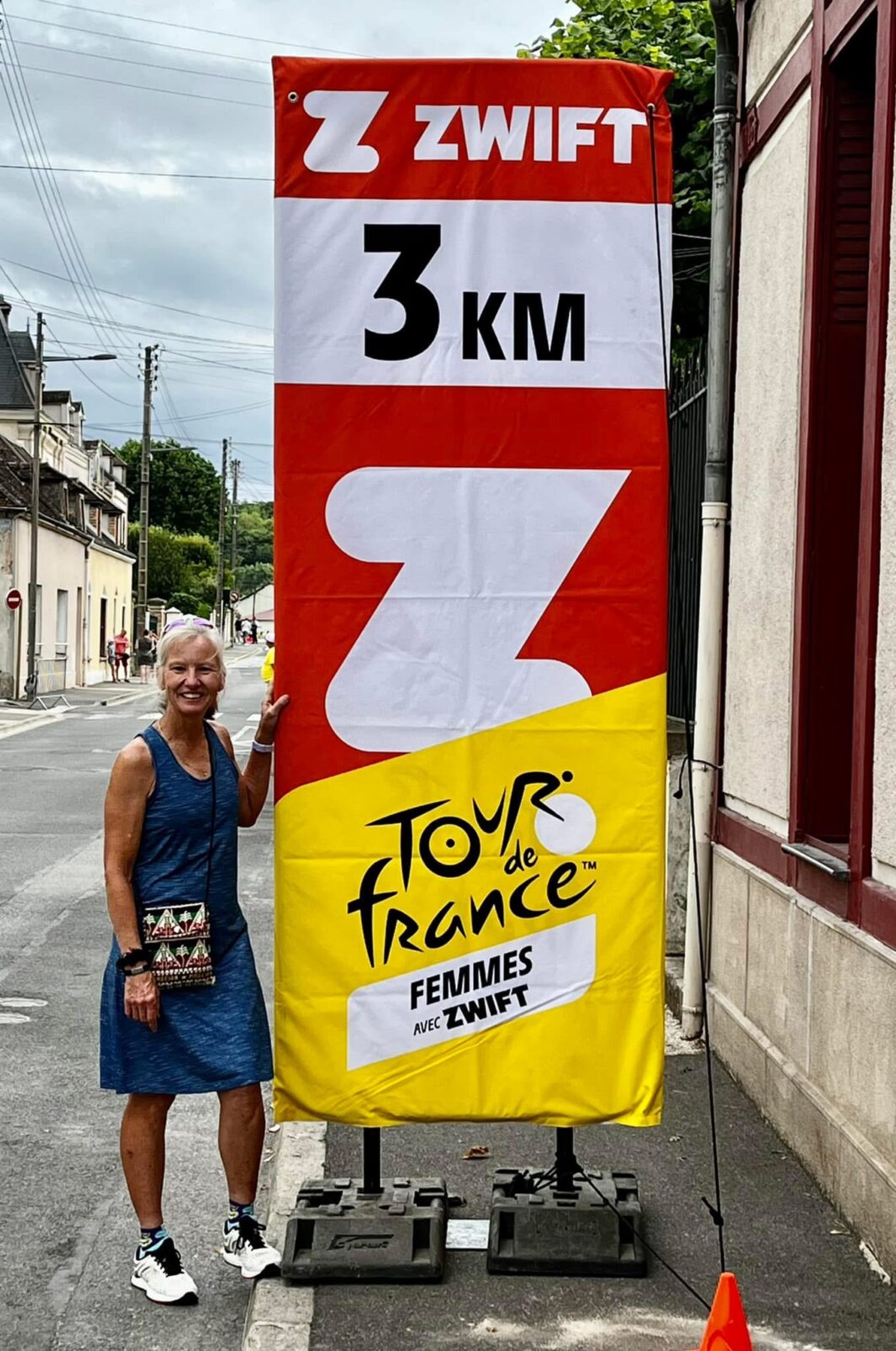
By Jenny Brown
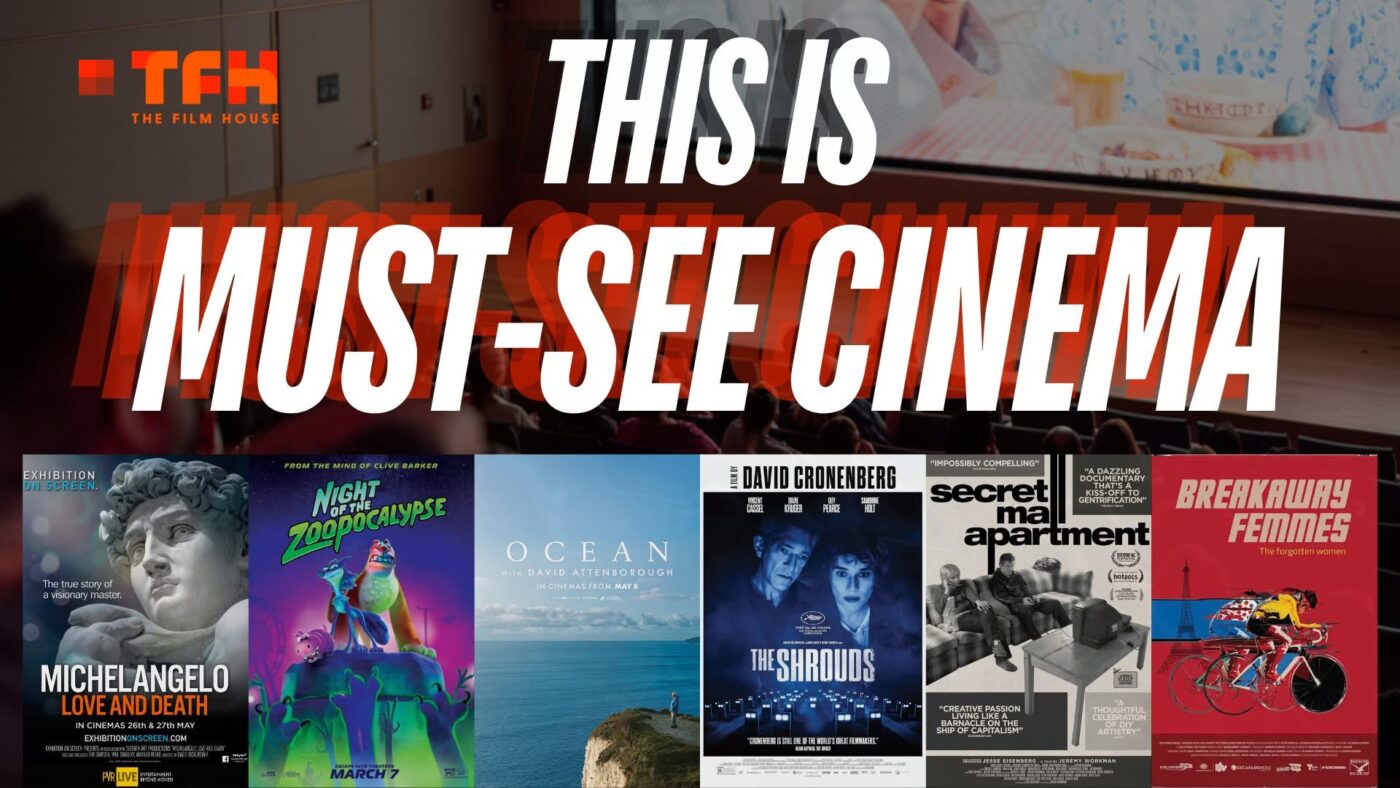


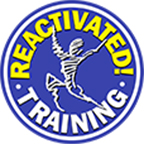

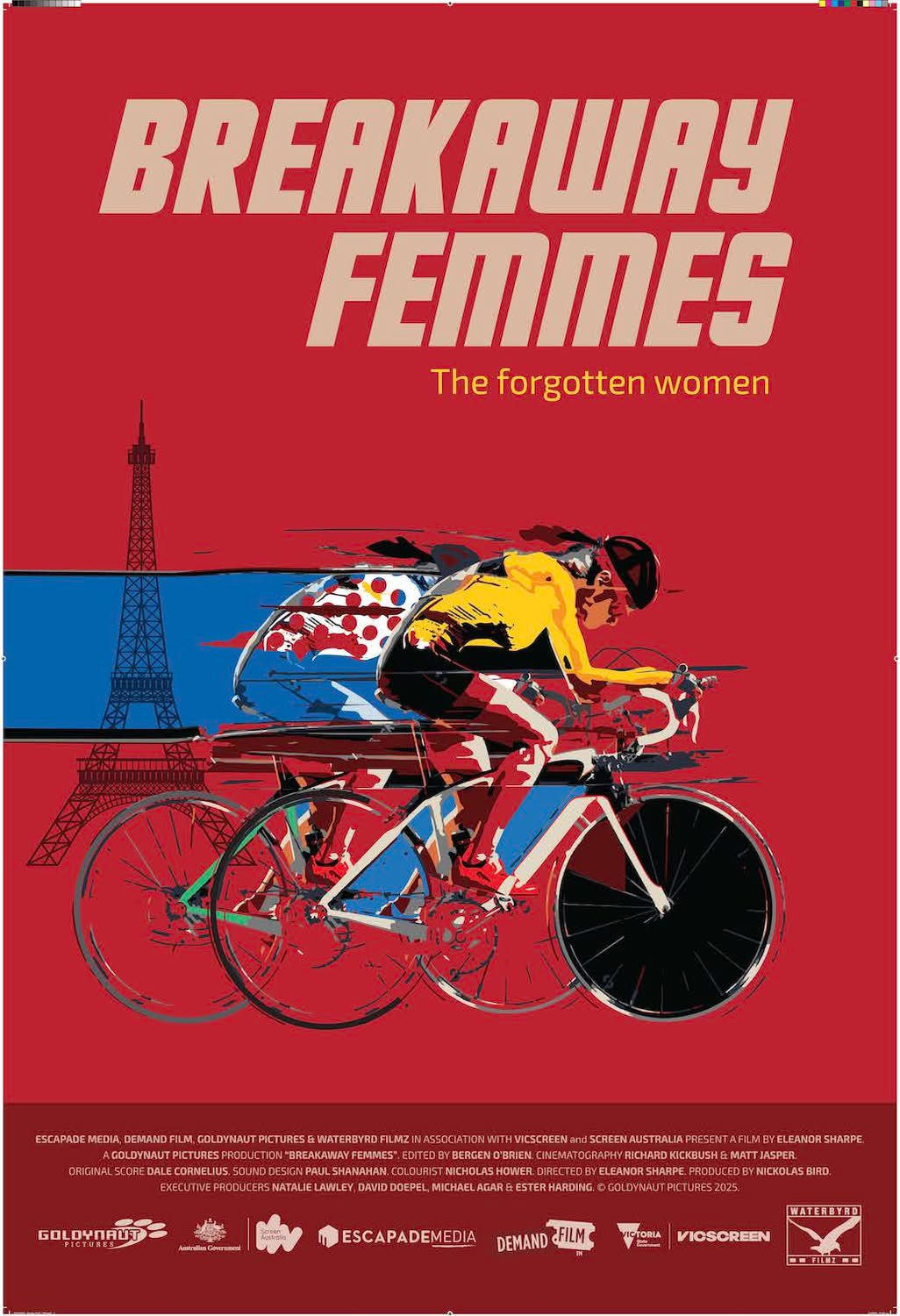
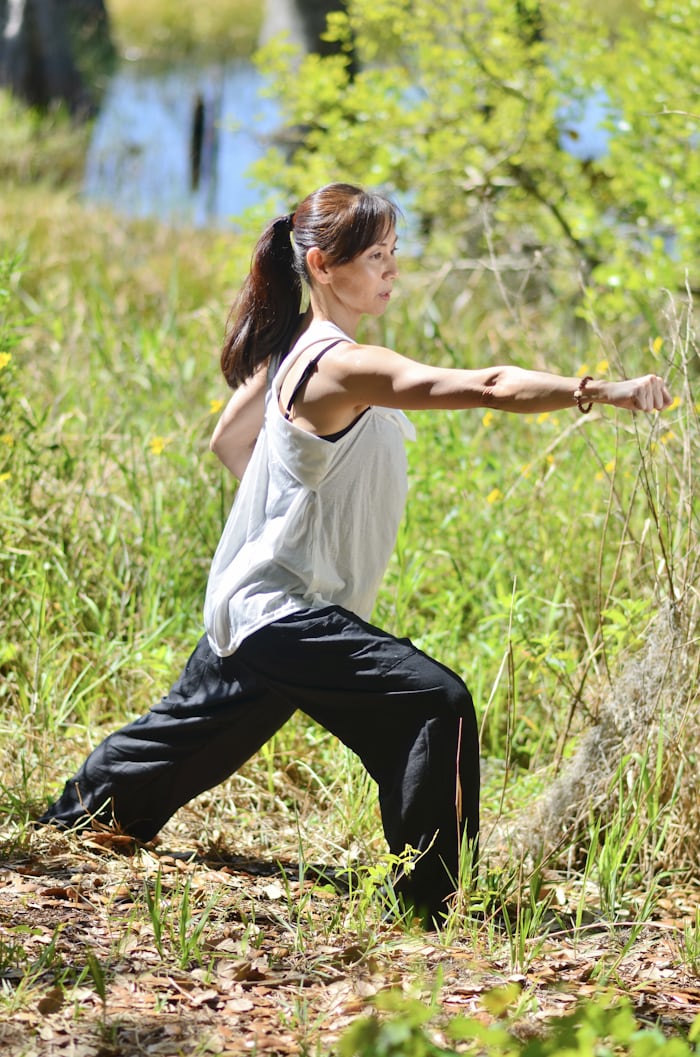
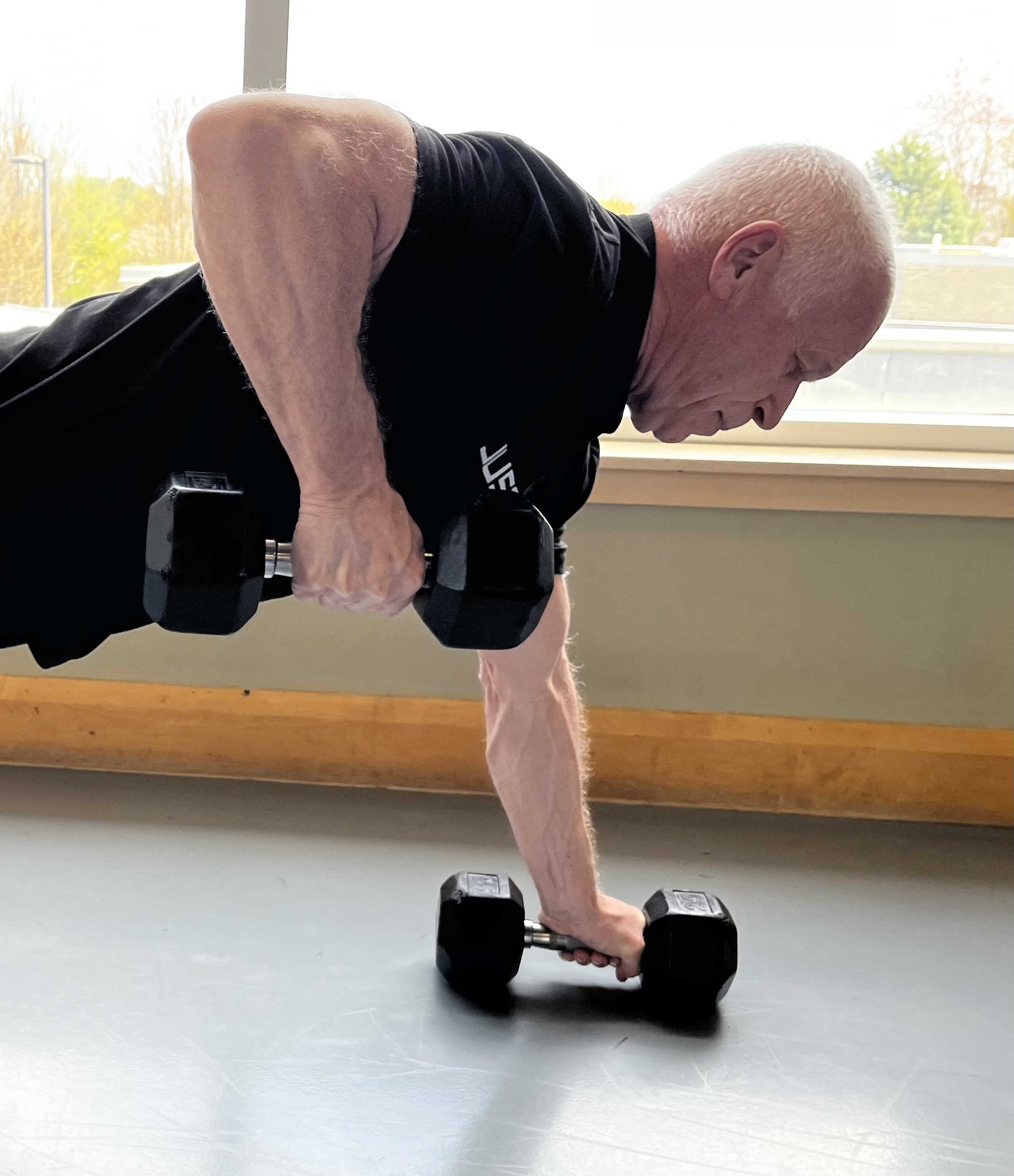
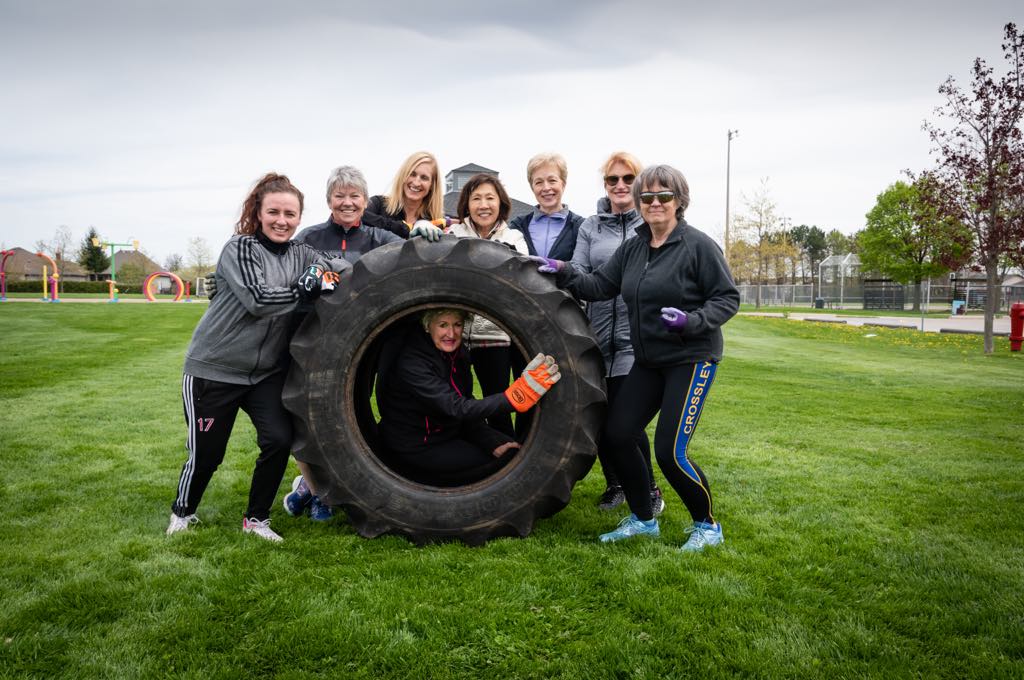


Leave A Comment